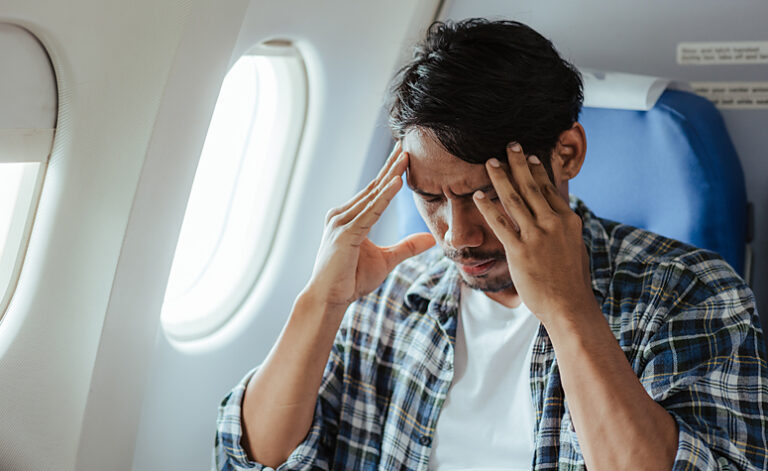Understanding and Treating Agoraphobia
Agoraphobia is a complex condition that involves being frightened of situations or environments that might cause a person to panic or make them feel trapped. Since such instances might occur anywhere and at any time, many sufferers of agoraphobia often avoid leaving their homes altogether.
This condition can be effectively addressed through a variety of comprehensive treatments comprising of medication, cognitive behavioural therapy, and significant adjustments to a persons lifestyle. Additionally, treatment is typically more successful if the condition is diagnosed early.

What is Agoraphobia
Agoraphobia is an anxiety disorder that manifests through a strong fear of being unable to seek refuge or assistance in an overwhelming situation. Since it is marked by intense apprehension and anxiety, agoraphobia often causes people to avoid new settings and challenging experiences. Examples include the avoidance of:
- Crowded places
- Large open areas
- Enclosed spaces
- Public transportation
How common is Agoraphobia?
Researchers have yet to ascertain the precise aetiology of agoraphobia. Nevertheless, it is frequently correlated with panic disorders, which cause short-term bouts of intense anxiety in patients. Approximately a third of panic disorder patients also suffer from agoraphobia, although the condition can also appear on its own.

Signs and Symptoms of Agoraphobia
Every human being has experienced anxiety at some point in their life. However, when this anxiety is so consuming that it affects their ability to fulfil daily commitments, it is usually a marker of a disorder. Agoraphobia is similar in this regard, as it may cause excessive trepidation and stress, causing people to avoid situations and settings that might trigger them.
Panic attacks and agoraphobia manifest through similar symptoms, including:
- Increased heart rate
- Chest pain
- Sudden flushing or chills
- Hyperventilating
- Feeling shaky and afraid
- Excessive sweating
- Feeling dizzy or lightheaded
- Stomach issues

Keep your face always towards the sunshine,
and the shadows will fall behind you
What Causes Agoraphobia?
Similarly to numerous other mental health disorders, it is challenging to pinpoint a singular cause for agoraphobia. Experts posit that the condition might be caused by a combination of different factors, including:
- The existence of a co-occurring anxiety disorder (be it general anxiety disorder (GAD), separation anxiety, panic disorder, or social anxiety disorder)
- Genetic predisposition
- Experiencing trauma in childhood or growing up without parental love and support
- High-stress jobs or living arrangements
- A co-existing dependency on alcohol or drugs
Who is affected by Agoraphobia?
In the United Kingdom, approximately 1 in 8 people has some type of anxiety or panic disorder. More than a third of them (around 1.5 million individuals) also have agoraphobia, with the prevalence of this condition being twice as high in women compared to men. According to experts, the gender-based difference might be caused by a variety of reasons, such as:
- Women simply seek help, and therefore get diagnosed, more often than men.
- Women typically use avoidant strategies to combat agoraphobia; conversely, men are more likely to cope by developing alcoholism, meaning that their agoraphobia is often treated as an alcohol addiction instead.

Treatment for Agoraphobia
If you suspect that you or someone you know may be struggling with agoraphobia, it is essential to understand that you are not alone, and the most important first step is to seek professional advice and help.
We have many expert mental health consultants who specialise in agoraphobia. and understand that every individual experiences agoraphobia differently. Therefore, we are dedicated to creating customised treatment plans to address your specific issues using methods that are proven to deliver results.
The first step in your recovery will be receiving a comprehensive assessment, which will help your dedicated mental health team determine whether your agoraphobia is affected or caused by any other co-existing condition that may require treatment. Your specialists will then be able to direct your treatment based on your individual needs.
Our highly qualified specialists will work with you to determine the exact nature of your agoraphobia and teach you some simple behavioural and lifestyle modifications you can make to enhance your ability to cope with the condition.
To support these changes our experts will also utilise cognitive behavioural therapy (CBT) as a way of treating the symptoms and any underlying problems. CBT is widely used in agoraphobia therapy and has been proven to be a highly effective approach in helping people achieve a level of self-management over their condition.
Cognitive behavioural therapy (CBT)
To support the above lifestyle and behavioural changes, our experts will also utilise cognitive behavioural therapy (CBT) which is a highly effective therapeutic method of treatment for agoraphobia. CBT is based around the idea that unhelpful and unrealistic thinking leads to negative behaviour.
The core aim of CBT is to break this cycle and find new ways of thinking that can help you behave more positively. For example, many people with agoraphobia have the unrealistic thought that if they have a panic attack it will kill them.
Your specialist CBT therapist will aim to encourage a more positive way of thinking – for example, although having a panic attack may be unpleasant, it is not fatal and will pass. This change in approach and thinking will lead to more positive behaviour in terms of a you being more willing to confront situations that previously found scary.
CBT is usually combined with exposure therapy. Your therapist may set relatively modest goals at the start of treatment, such as going to your local corner shop. As you become more confident with your new skills, more challenging goals can be set, such as going to a larger supermarket or having a meal in a busy restaurant.
This process of cognitive behavioural therapy takes time and patience, but the rewards on offer of a new freedom in daily living without the fear of panic attacks is well worth it.
Medication for agoraphobia
For some people suffering with agoraphobia medication is also an option and usually takes the form of selective serotonin reuptake inhibitors (SSRIs), a type of antidepressant drug. SSRIs are proven to be effective in the treatment of agoraphobia, particularly when used in conjunction with therapy and help to reduce anxiety. These drugs are non-addictive, and their effects can only be noticed after several weeks. It is crucial to take a full course of SSRI treatment, which is typically a year or more.

Agoraphobia Self-Help Tips
Below, we are some useful words of advice that might help you cope with the symptoms of agoraphobia in your own daily life:
- Understanding agoraphobia
Try to understand all the different symptoms of agoraphobia, as doing so might help you recognise certain behavioural patterns that you exhibit in stressful situations and manage them more effectively.
- Triggers
Learn to understand your triggers and attempt to minimise instances in which they might appear.
- Acceptance
Acknowledge a panic attack for what it is, because the severity of its symptoms will significantly diminish. While experiencing a panic attack is indeed intimidating, understanding its typically short-term nature may empower you to manage it slightly better.
- Stay where you are
Try to resist the compelling urge to run to a place of safety during a panic attack; if you’re driving, pull over and stop where it’s safe to do so.
- Breathe slowly and deeply
Feelings of panic and anxiety can get worse if you breathe too quickly; try to concentrate on slow, deep breathing while counting slowly to 3 on each breath in and out.
- Creative visualisation
During a panic attack, try to resist the desire to think negative thoughts, such as “disaster”; instead, think of a place or situation that makes you feel safe, relaxed or at peace: once you have this image in your mind, try to fully focus your attention on it.
- Do not try to fight an attack
Trying to fight the symptoms of a panic attack can often make things worse. Instead, reassure yourself by accepting that although it may seem embarrassing and your symptoms may be difficult to deal with, the attack is not life threatening and will pass in due course.
- Be kind to yourself
Try not to put too much pressure on yourself to heal right away; understanding your symptoms and combating them will require copious amounts of time, effort, and patience.
- Remember you are not alone
Remind yourself that you are not alone in your struggles, as countless people of all ages and with different backgrounds experience panic attacks on a daily basis.
- Talk to family and friends
Share your symptoms and fears with your loved ones because their support might help make managing your condition easier.
- Seek professional support
Attempt taking small steps toward overcoming your fears with the help of a professional; for instance, entering a crowded space for 5 minutes with someone you trust is an excellent starting point.
You could consider making some lifestyle changes which can also help. For example, try the following recommendations:
- Take regular exercise
Regular exercise can help relieve stress and tension and improve your general mood as well as your overall physical and mental health.
- Eat a healthy diet
A healthy, balanced diet and weight can help maintain overall health.
- Avoid alcohol and drugs
Although alcohol and drugs may provide short-term relief, in the long term they can be a significant factor in symptoms getting worse.
- Avoid drinks containing caffeine
Caffeine has a stimulant effect and can make your symptoms worse, so try to avoid drinks such as coffee, tea or cola.
FREE Agoraphobia Assessment
If your or a loved one are struggling with the effects of agoraphobia disorder, we understand the challenges you’re facing and we’re here to offer compassionate help.
Our highly trained advisers are available to speak to you right away, simply call 0808 252 3379 today.
We can discuss your concerns in complete confidence, explore the options for treatment, and help you to understand what will work best for you.
We’ll also help you to book your free agoraphobia disorder assessment there and then, with appointments usually available within only a few days.
We understand that taking the first step can be the most difficult, but we’re here to support – with no pressure or judgement.
Professional and compassionate help is just a phone call or click away.




